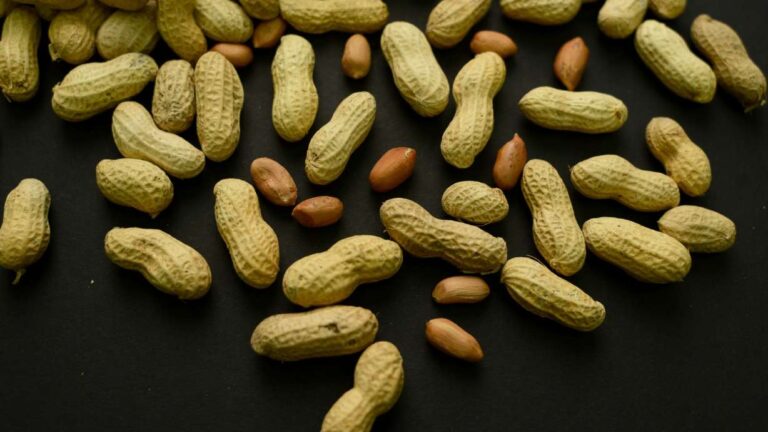SALT LAKE CITY — Parents who start introducing peanut products to their children very early, from infancy through age 5, can help significantly reduce their child’s risk of developing a peanut allergy later in life.
it is, study The study, sponsored by the National Institute of Allergy and Infectious Diseases at the National Institutes of Health and led by King’s College London, overturns long-held ideas about how to embrace or avoid potential allergens. The findings are published in the journal NEJM Evidence.
The findings held true even when children subsequently abstained from peanut products for an extended period of time. The study found that early, regular exposure “was associated with tolerance to peanuts that persisted into adolescence, regardless of subsequent peanut intake, demonstrating that long-term prevention and tolerance of food allergy is achievable.”
“Today’s findings should give parents and caregivers greater confidence that introducing peanut products beginning in early childhood, in accordance with established guidelines, can duly prevent peanut allergies,” institute director Jeanne Marrazzo, PhD, said in a statement. “If widely implemented, this safe and simple strategy could prevent tens of thousands of cases of peanut allergy among the 3.6 million children born in the United States each year.”
The findings are part of a three-part study on the topic.
The first clinical trial was called “Early Learning About Peanut Allergy” and the subsequent study both addressed the potentially life-threatening issue of peanut allergies. In this study, half of the participants ate peanut butter regularly until age 5, and the other half did not eat any peanuts during that time. Early exposure to peanuts reduced the risk of peanut allergy at age 5 by 81%. The second study included children from the first study and were told to avoid peanuts from age 5 to 6. Most children in the first study group who were exposed to peanuts did not have a peanut allergy at age 6.
In the third study, 508 of the 640 children in the original study participated. Their average age at the time was 13 years old. Of these, 255 were in the peanut eater group, while the remaining 253 had avoided peanuts since childhood. The children were then given gradually increasing amounts of peanuts in a “carefully controlled environment” to see if it was safe for them to eat more than 20 peanuts. They were also asked about their recent peanut eating habits.
‘The sooner the better’
In the third study, 14.5% of those who avoided peanuts from an early age and 4.4% of those who consumed peanuts developed a peanut allergy by age 12 or older. This suggested that early introduction of peanuts and regular consumption up to age 5 reduced the risk of developing an allergy during adolescence by 71%.
For detailed advice on introducing peanuts to infants early and safely, see the research paper:Supplemental Guidelines for Peanut Allergy Prevention in the United States” is a document specifically designed for parents and guardians.
“Generally, the answer for parents is ‘the earlier the better,’ especially for babies with eczema,” Gideon Lack, professor of paediatric allergy at King’s College London and author of the study, told CNN. He noted that babies with eczema are at much higher risk of developing food allergies, and tend to develop allergies well before their first birthday.
“However, children must be developmentally and neurologically ready for solid foods and be able to coordinate chewing and swallowing well without the risk of choking. Most babies can start solid foods at four to six months of age, but every baby is different and needs to be assessed individually,” he said. “Food should also be given as a soft puree to make it easier to swallow and reduce the risk of choking. We do not recommend introducing solid foods before the age of three months.”



